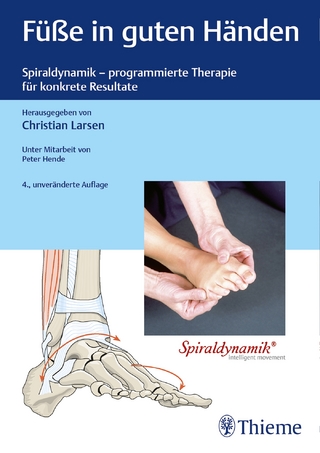
Biomotors and their Nanobiotechnology Applications
CRC Press (Verlag)
978-1-032-31314-6 (ISBN)
- Lieferbar (Termin unbekannt)
- Versandkostenfrei innerhalb Deutschlands
- Auch auf Rechnung
- Verfügbarkeit in der Filiale vor Ort prüfen
- Artikel merken
This book – a collection of reviews and research articles by the top academics in the field – provides a glimpse of the cutting-edge technology and research being carried out and shows how researchers are utilizing this knowledge to develop new areas of study and novel applications. It serves as a valuable resource while exploring the latest advances in virus particle assembly and demonstrating how the knowledge of fundamental processes has been used to advance bio-nanotechnology. Chapters detail biophysical approaches and biomotor research, discus the latest advances in DNA/RNA nanoparticle assembly and use, and introduce the use of DNA/RNA nanoparticles for drug delivery.
Peixuan Guo is the Director of the NIH Nanomedicine Development Center at the University of Cincinnati, Ohio and the Director of the NIH/NCI Cancer Nanotechnology Platform Partnership Program: RNA Nanotechnology for Cancer Therapy at Purdue University, Indiana. He is also a Fellow of the National Academy of Inventors. Aibing Wang is a Molecular Biologist in Department of Oncology, Lombardi Comprehensive cancer center, Georgetown University Medical Center and a chemist in SynerGene Therapeutics, Inc. (SGT).
1. Biological nanomotors with linear, rotation, or revolution motion mechanism. 2. Classifications and typical examples of Biomotors. 3. Structure of revolving biomotors. 4. Structure of rotation motors. 5. Structure of linear motors. 6. Mechanical Properties of Molecular Motors and the Relevance to Their Biological Function. 7. Molecular Mechanism of AAA-ATPase Motor in the 26S Proteasome. 8. General mechanism of biomotors. 9. Mechanism of revolving motors. 10. Mechanism of rotary motors. 11. Mechanism of linear motors. 12. Finding of widespread viral and bacterial revolution dsDNA translocation motors distinct from rotation motors by channel chirality and size. 13. The ATPase of the phi29 DNA packaging motor is a member of the hexameric AAA+ superfamily. 14. Arginine Finger Serving as the Starter of Viral DNA Packaging Motors. 15. Three-step channel conformational changes common to DNA packaging motors of bacterial viruses T3, T4, SPP1, and Phi29. 16. Sequence Dependence of Reversible CENP-A Nucleosome Translocation 17. Same function from different structures among pac site bacteriophage (TerS) terminase small subunits. 18. Kinetic study of the fidelity of DNA replication with higher-order terminal effects. 19. Multilevel Control of the Activity of p97/Cdc48, A Versatile Protein Segregase. 20. High resolution structure of hexameric herpesvirus DNA-packaging motor elucidates revolving mechanism and ends 20-year fervent debate. 21. Methods for Single-Molecule Sensing and Detection Using Bacteriophage Phi29 DNA Packaging Motor. 22. Instrumental design of five-dimensional single particle tracking. 23. The appropriate ratio of retroviral structural proteins is activated by the spleen necrosis virus post-transcriptional control element. 24. Translation of the long-term fundamental studies on viral DNA packaging motors into nanotechnology and nanomedicine. 25.Translocation of Peptides through Membrane-Embedded SPP1 Motor Protein Nanopores 26. Insertion of channel of phi29 DNA packaging motor into polymer membrane for high-throughput sensing. 27.Engineering of protein nanopores for sequencing, chemical or protein sensing and disease diagnosis 28. Phage Portal Channels as Nanopore Sensors. 29. Controlled Co-assembly of Viral Nanoparticles of Simian Virus 40 with Inorganic Nanoparticles: Strategies and Applications 30. Potential of 3Dpol As An Enzymatic Reader for Direct RNA Sequencing. 31. Channel from bacterial virus T7 DNA packaging motor for the differentiation of peptides composed of a mixture of acidic and basic amino acids. 32. Nano-channel of viral DNA packaging motor as single pore to differentiate peptides with single amino acid difference.
| Erscheinungsdatum | 05.11.2024 |
|---|---|
| Zusatzinfo | 4 Tables, black and white; 2 Line drawings, color; 31 Line drawings, black and white; 30 Halftones, color; 100 Halftones, black and white; 32 Illustrations, color; 131 Illustrations, black and white |
| Verlagsort | London |
| Sprache | englisch |
| Maße | 178 x 254 mm |
| Themenwelt | Medizin / Pharmazie ► Physiotherapie / Ergotherapie ► Orthopädie |
| Technik ► Medizintechnik | |
| Technik ► Umwelttechnik / Biotechnologie | |
| ISBN-10 | 1-032-31314-5 / 1032313145 |
| ISBN-13 | 978-1-032-31314-6 / 9781032313146 |
| Zustand | Neuware |
| Haben Sie eine Frage zum Produkt? |
aus dem Bereich


